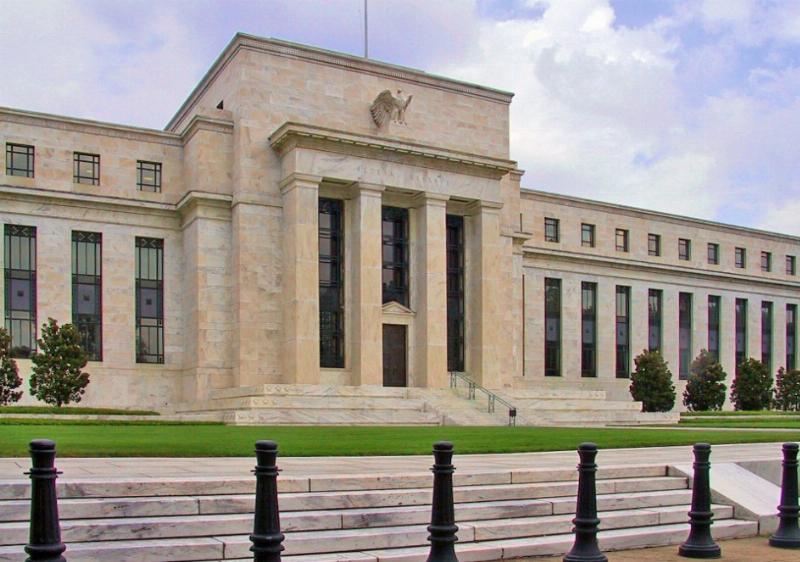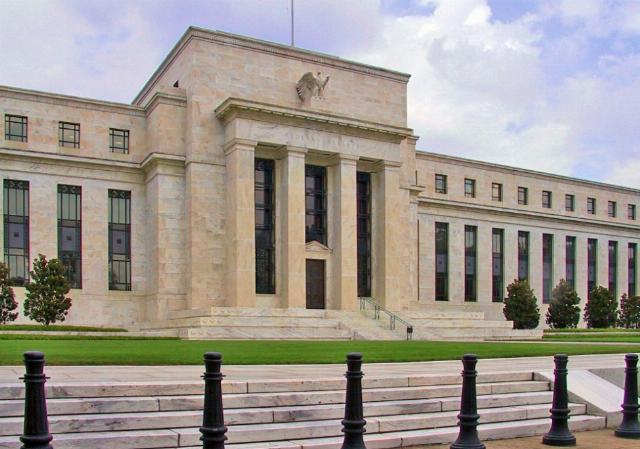


There is something wrong in our economic lives: We make the same amount of money but are spending more of it just living, and we run out sooner. We are dipping into savings, or we are taking on debt, but we aren’t spending extravagantly. We aren’t buying fancy gizmos.
This is the effect the Federal Reserve’s monetary policy has on our everyday lives. Most folks don’t recognize the cause of their economic woes. That’s understandable.
As the founder of a commercial bank and student of monetary policy, I still get confused by certain actions taken in the economy.
For instance, seventeen years ago, Fed monetary policy started the domino effect that resulted in our malaise today. They created 9 trillion addition dollars using an arcane process called Q.E. That event seventeen years ago led to a severe devaluation in the purchasing power of our dollars. This resulted in price inflation today. Price inflation is caused by devaluation in the dollar. Dollar devaluation was caused by Fed implementation of a mistake in policy. This massive inflation was inevitable when the Federal Reserve “printed” $9 trillion through Q.E. We must understand the cause, before we can implement a cure.
The specific recommendations for repairing monetary policy will be debated extensively. However, this debate should be put on hold until we establish the principle that must guide every decision by the Fed and provide accountability for their actions. Without a principled understanding of its directive, I fear that Fed policy will continue wandering lost in the woods.
Principle drives action toward a worthy goal. That principle in this case should be the Fed Reserve’s 1913 (original) Prime Directive: “Maintain and sustain the value of the U.S. dollar.” Use monetary policy to attain that single goal, and the Fed would have enjoyed great success and appreciation. Sadly, Fed policy has been the sole arbiter of a 97% decline in the purchasing power of the dollar since 1913. We are suffering that dollar devaluation through rampant inflation; we buy the same commodities but spend many more dollars. Inflation is a silent tax; it robs the earner of his dollar’s value.
The Fed is highly centralized today. Its edicts come from central headquarters in Washington. Yet the vast bulk of the nation resides and works far from the swamp. As Joseph Sternberg puts it,
the goal would be to improve democratic accountability at the regional level, while also injecting more intellectual diversity into FOMC decision making by weakening the power of the Washington-based board of governors — both of which are worthy goals.
Fed monetary policy strayed from its original directive. Instead of protecting the value of the U.S. dollar, the Fed has become another agency bent on administering social justice and political influence. In this, it is just like the Department of Education, which tries to reform social norms and instill a particular brand of social justice in children. The Dept. of Education became the propaganda arm of the socialist movement. The Department of Energy isn’t here to see that Americans have clean, cheap energy. Its objectives morphed into an irrational hatred of fossil fuels — social engineering, not energy policy.
Most of the Fed’s political and policy problems arise because the central bank does way too much. “Scrutiny of Fed rhetoric and actions makes it clear that the Fed has moved beyond its traditional narrow, technocratic role and instead has pursued a much more expansive monetary and regulatory agenda that is more consistent with an explicitly political institution,” the economists wrote.
Sternberg’s comments on the Fed’s Q.E. policy follow. The Fed’s balance sheet grew from $800 billion in 2008 to $9 trillion ten years later. That massive expansion in money supply caused the inflation under which we suffer today. That inflation (rise in prices) is almost exclusively due to devaluation of the U.S. dollar caused by excess dollar “printing” using Q.E.
After 2008, the expansion of the Fed’s balance sheet made the central bank a significant participant in markets for longer-term Treasury debt and mortgage-backed securities. The Fed’s suppression of longer-term interest rates encouraged Congress to ramp up spending, income from Fed officials.”
Fed policy has no business in telling banks how to lend, using “reputational risk” as the excuse. Fed policy has no business striving for “full employment”; that is the sole purview of private business, because it is our capital that determines employment, not some disengaged bureaucrat. The Fed has no right to be complicit in putting generations of taxpayers into massive debt as it did with Q.E.
The Fed’s regulatory power also creates temptations for political mischief. The Fed can inject climate mandates, for instance, into its regulatory criteria for banks. The Fed and other regulators already have been called out for applying nebulous cautions about “reputational risk” in ways that encouraged banks to ditch politically unpopular customers. And all while regulators miss looming disasters such as the implosion of Silicon Valley Bank.
Just about all the agencies in the Administrative State are not held to account for their mistakes. They do whatever they please, and citizens end up footing the bill. That is why the founders were so wise as to allow the power to make binding laws, to tax and spend, for only those elected by the people. Note here that the end of the Chevron Act which made it illegal for the EPA to arbitrarily assess fines and restrict energy development. Chevron affects every federal regulatory agency.
No democratic political system can tolerate an unaccountable institution that exercises such awesome economic power and also makes so many mistakes. Witness mounting bipartisan frustration with the Fed in Congress. Mr. Miran’s nomination presents an opportunity for senators to reflect on how Congress could build a better central bank.
Since the Federal Reserve’s inception under President Woodrow Wilson — our first, but not only, socialist president — the Fed has embarked on policies at odds with its prime directive. It is a federal agency whose nefarious creation was to control the population through monetary policy. It did so by devaluing every dollar we earned and saved and by putting every one of us, including generations to come, into massive debt. It does not have that right.
Every agency in the administration needs to be held accountable and restricted to a goal that is in keeping with the well-being of every working, earning, and taxed individual citizen. We do not work for the agencies; they work for us. As such, we can and must demand their adherence to a higher principle.
Jay Davidson is founder and CEO of a commercial bank. He is a student of the Austrian School of Economics and a dedicated capitalist. He believes there is a direct connection joining individual right and responsibility, our Constitution, capitalism, and the intent of our Creator.

Image: The Federal Reserve. Credit: Dan Smith via Wikimedia Commons, CC BY-SA 2.5.
